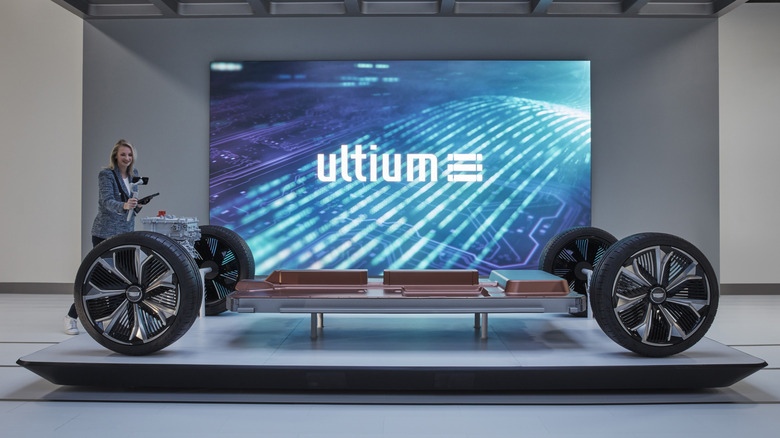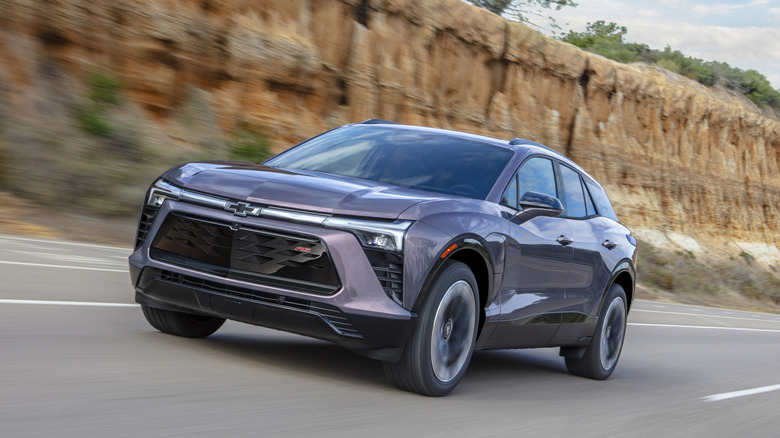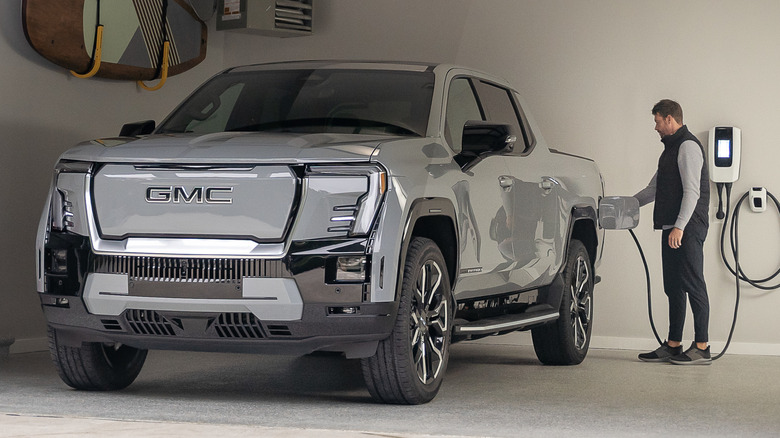General Motors Is Done With Ultium: Here's Why It Couldn't Be Saved
General Motors is done with Ultium, at least in name. According to a report by CNBC, GM is axing the branding, but not the technology that lies underneath its stable of EVs. While GM could accurately argue that the decision to ditch the Ultium branding is a financial decision backed up by a number of spreadsheets and board meetings, ultimately, it seems that GM couldn't get the Ultium name to latch onto any cultural or technological capital like Tesla or other brands seem to have managed.
A few years ago, you couldn't escape Ultium. General Motors, as far back as 2021, was saying that Ultium would solve all of the EV world's problems and then some. At the time of Ultium's birth, mind, GM had a single electric car, the Bolt, and it didn't even use the Ultium "electric skateboard" technology.
GM ended up pulling the plug on the Bolt, and eventually GMC launched the EV Hummer in the form of a several ton six-figure monster of an EV. For a time, that was the only Ultium powered car. Add in the Cadillac Lyriq a short time later and all GM had accomplished with Ultium was making two expensive cars that no one initially bought (and even if they wanted to, production bottlenecks made that all but impossible). Additionally, the Ultium brand failed to innovate in any major way apart from offering electric versions of cars that already existed.
The technology is already mainstream
Now, in the latter half of 2024, the technology formerly known as Ultium options have expanded a bit. On the larger end of the spectrum, there's the Chevy Silverado EV, the GMC Sierra EV, the Cadillac IQ, and the GMC Hummer. As far as crossover SUVs are concerned, Ultium resides within the Cadillac Lyriq, Cadillac Optiq, Chevy Blazer EV, and Chevy Equinox EV.
Lastly, there's the ultra-exclusive Cadillac Celestiq, but it's hard to categorize a $300,000-plus hand-built car as a mass-market offering.
Notice that all of those Ultium options, with the exception of the Lyriq and Optiq, are either electrified flavors of existing GM cars, or rehashed names. It's hard to parse a unique identity for a brand like Ultium when, in reality, it doesn't really do anything that revolutionary or different, especially in 2024 when almost every major has an EV for sale and the technology is decidedly mainstream. An EV-centric subbrand would have made sense in 2020 or 2021, had GM managed to actually get those cars out at scale, but it arguably doesn't make a lot of sense now.
Stop worrying about the branding
All told, it was too little, too late for Ultium. The branding failed to attach itself in any meaningful way to General Motors. The most successful and well-known GM EV, the Chevy Bolt, doesn't even use Ultium technology, and that speaks volumes about GM's rocky attempt to launch into the EV world. While GM fumbled with branding and making promises about vehicles it would eventually, maybe manufacture, Tesla continued to sell hundreds of thousands of EVs a year.
When GM first started experimenting with EV platforms, it needed to stop talking about the technology and actually make the cars. General Motors is, after all, a car company: one with the resources, infrastructure, and personnel to completely change the landscape of electric cars, and even beat Tesla at its own game.
The time for exciting branding to get potential electric car buyers onboard is long gone, and ironically GM fumbled whatever splash Ultium made there by simply lacking the product to match the pitch. These days, far better to focus on making EVs safer, cheaper, more convenient, and easier to charge.


